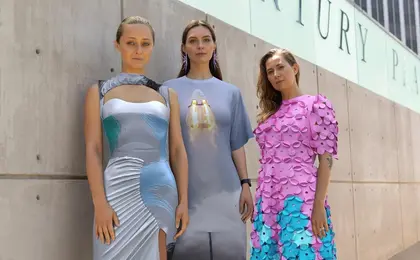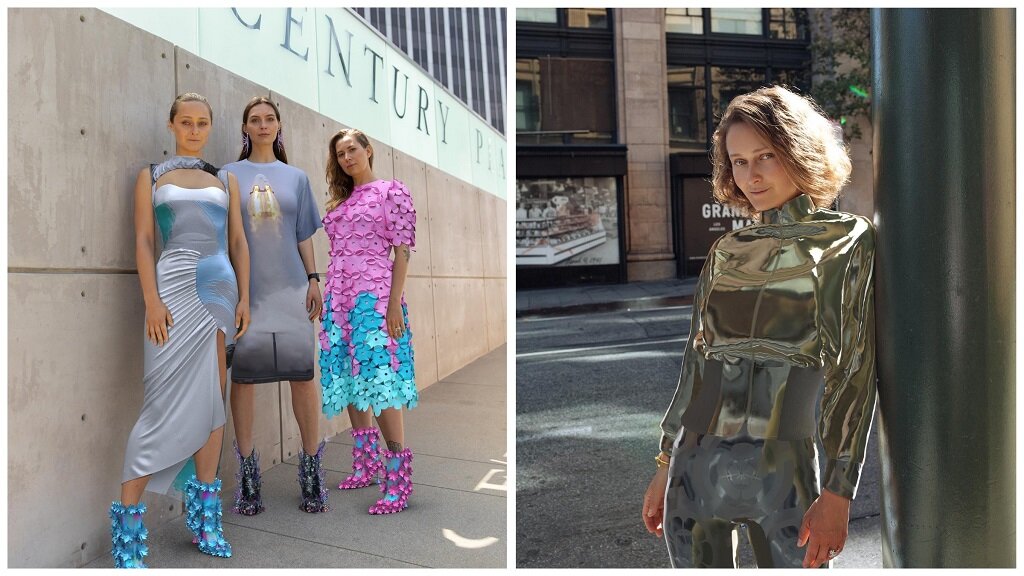Ukrainian entrepreneurs Daria Shapovalova and Natalia Modenova announced on July 6 that they raised $2 million from big U.S. investors to finance a fashion-tech startup called DressX. Based in Los Angeles, the startup creates digital clothes purchased to “wear” online.
The investment round was led by Alpha Edison, one of the largest venture capital funds in Los Angeles, and The Artemis Fund, followed by angel investors that work in the fashion, tech and blockchain industries.
JOIN US ON TELEGRAM
Follow our coverage of the war on the @Kyivpost_official.
With this money, DressX wants to promote its clothes on social media, create a mobile app and launch an online marketplace where people can buy digital clothes for non-fungible tokens (NFT), the blockchain tokens that represent a unique digital item. “Our goal is to sell a billion digital items, allowing everyone to be a part of a fashion industry,” Shapovalova said.
Launched in August 2020, DressX now works with over 100 well-known and up-and-coming fashion designers and sells over 1,000 digital clothing items, including jackets, suits, dresses and shoes. Although these clothes don’t exist in the real world, people usually buy them to change their appearance on photos posted on Facebook or Instagram.
Popular brands also use digital garments. The Ukrainian fashion magazine L’officiel, for example, put a model posing in the digital outfit on its February cover, while game developers partner with DressX to dress up gamers’ avatars. People in the fashion industry need digital clothing to create fresh content for social media or to try out brand-name clothes for a lower price, Shapovalova told the Kyiv Post in an interview in August 2020.
Digital wear is better for the environment than swanky, worn-just-once clothing that usually ends up in a landfill. Apparel is one of the most polluting industries in the world. Almost one in ten shoppers buy clothes to create content for social media, surveys show. Digital garments, in turn, do not pollute the environment but look as real and as beautiful in photos as clothes off the rack.
It especially appeals to GenZ and Millennials, generations that turned social media into a business platform and welcome fashion trends that are creative and affordable. They are also more concerned about the social and environmental impact of the traditional fashion industry on the planet, DressX said.
DressX produces no waste. All it takes to buy a digital dress is a high-quality picture of a person — preferably, in slim-fit clothes with no sleeves. The price of the clothing item depends on the fashion brand. For example, the futuristic dress by renowned designer Alejandro Delgado costs $120, while clothing items by lesser-known brands can cost about $30.
According to DressX’s founders, digital clothes allow for experimentation: the clothing can be bright and captivating, not necessarily realistic. For example, DressX sells shoes adorned with big flowers or suits reminding of Jedi from Star Wars. There is yet another advantage of digital clothes — “you can try on clothes you wouldn’t dare (to wear) in real life,” Modenova told the Kyiv Post.
You can also highlight the text and press Ctrl + Enter









